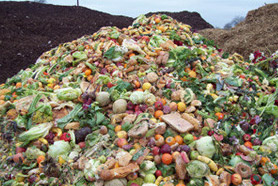Huge amounts of usable food are being wasted and ending up in landfill.
A third of the world’s entire food supply could be saved by reducing waste – or enough to feed 3 billion people.
Food that is produced but not eaten each year is responsible for adding 3.3 billion tonnes of greenhouse gases to the planet’s atmosphere.
1.4 billion hectares of land – 28 per cent of the world’s agricultural area – is used annually to produce food that is wasted.
New Zealand Food waste to landfill from residential waste is estimated at 258,886 tonnes per annum, costing $751million – 80kg/family/year =$500. New Zealand grows enough food to feed 200 million people.
A study by the Tauranga City Council in 2013 identified that food waste was as high as 30% of content of house hold rubbish bags.
24 to 35% of school lunches end up in the bin and yet 270,000 children go without meals each day.
A September 2013 report by WasteNot consulting for WasteMINZ Behaviour Change Sector Group identified that total food waste to landfill from residential waste is estimated at 258,886 tonnes per annum, costing $751million. It is estimated that 10% or 25,889 tonnes of this waste could have been eaten.
A study by the Tauranga City Council in 2013 identified that food waste was as high as 30% of content of house hold rubbish bags. When decomposed in anaerobic conditions typical of landfills, food waste generates methane, a greenhouse gas with a global warming potential 25 times greater than that of carbon dioxide.



